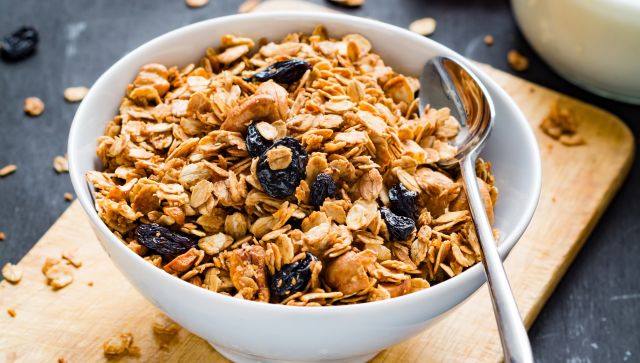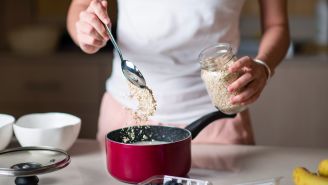Feeling pain or a strange discomfort in your abdomen? Don’t worry; you're not alone. Every year, thousands of people are admitted to hospitals for abdominal pain stemming from digestive illnesses—and 200,000 of them are admitted specifically for diverticulitis. Here’s what you should know about this common gut condition’s causes, signs, symptoms and treatments.
What is diverticulitis?
Diverticulitis occurs when small pouches that form in weaker spots in the walls of your colon, known as diverticula, become inflamed or infected. “The colon’s biggest job is to reabsorb fluid,” says gastroenterologist Robert Shmuts, DO, of Lourdes Medical Center of Burlington County. “The colon has muscles around it that move stool along and wring out the water. Diverticula develop over years of this squeezing and wringing.”
Dr. Shmuts likens the formation of diverticula to a balloon. “If you put a balloon in your hand and squeeze it, parts will stick out of your hand,” he says. “That’s what’s happening in your colon. You get these little packets coming off the wall.”
About half of people over age 60 have diverticula, and up to 25 percent of them will develop diverticulitis, according to some estimates. It’s more common in women over 50 than men over 50, but more common in men under 50 than women under 50.
Common signs and symptoms of diverticulitis include constipation, cramps, bloating and painless bleeding from the rectum, which is sometimes major.
While the specific cause of diverticulitis is unknown, suspected risk factors include a lack of exercise, obesity, smoking, certain medications and having a low-fiber diet. “Folks who are sedentary, smoke, are obese or have poor diets tend to have problems with constipation,” says Shmuts. “That can correlate to other bowel problems. It’s important to try to keep your bowels regular to begin with.”
Diverticulitis testing and treatment
To check for diverticulitis, healthcare providers (HCPs) have to administer a series of tests to ensure an accurate diagnosis. Testing usually starts with a physical exam, where the abdomen is checked for any odd tender spots, and sometimes a digital rectal exam. Then, your HCP may order tests to eliminate other conditions. These include:
- Blood and urine tests, to check if the symptoms are being caused by an infection
- A pregnancy test
- A stool test to ensure the pain is not from a bowel infection
Ultimately, a CT scan will confirm if there are any inflamed or infected areas in your colon. This test not only can confirm the presence of diverticulitis, but also will help your HCP determine how severe your case may be.
More mild cases of diverticulitis can be treated with oral antibiotics. If the oral antibiotics don’t work, IV antibiotics in a hospital might be necessary. Serious complications, including intestinal blockages or bleeding that won’t stop, may require surgery to remove part or all of the colon. Some people may need a temporary or permanent colostomy, a procedure that connects the remaining healthy colon to a new opening in the abdominal wall. Waste goes into a bag or container
“Colostomies are rare,” says Shmuts. “But if people keep getting diverticulitis, they might develop abscesses, which is known as complicated diverticulitis.” Before colostomies were in wider use, says Shmuts, surgeons would simply cut out the affected section of colon and connect the two ends with stitches.
“But the problem is, with complicated diverticulitis the tissue would be inflamed from infections, and the stitches would rip,” he says. “These people would become septic and they could die. Whenever someone has complicated diverticulitis, they get surgery and a colostomy bag. After a couple of weeks, we reverse the ostomy if the person is healthy.”
How to slash the risk of diverticulitis
The best way to help prevent diverticulitis is to eat a fiber-rich diet. Whole-wheat foods, granola, dates and popcorn are good choices. Eating enough fiber can also help lower cholesterol, maintain a healthy weight and control blood sugar, along with lowering the risk of other colon conditions like colon cancer.






